This tour lets you get your hands in the dirt, wander among coffee trees and look for green sea turtles along the cliffs of the Pacific Ocean.
New to Kauai Coffee, the farm tour has been ongoing since February, and is an hour and a half of everything coffee.
Lisa Johnston, the guide, welcomes attendees at Kauai Coffee Farm’s front desk right as the cafe is opening in the morning. Guests sample some of the 12 or so types of coffee out in a waiting area and watch a short movie to get an understanding of the place. Get there early enough and there’s time to grab a snack before you leave.
The tour is light and fun, with plenty of guest interaction. Along the tour route are a few leased acres of farmland that provide a glimpse of horses and donkeys. And say aloha to the farm staff working in the fields as you pass.
Driver Bob Brun always stops for feral pigs that cross the tour at random.
After getting settled in, the tour starts with the plantation-era history of the Alexander &Baldwin land that Kauai Coffee leases for their farm, the biggest coffee farm in America. Guests get to check out some ulu, or breadfruit, from afar, as well as mango and other fruit trees left over from that history.
Then it’s a drive through eight-foot trees, and an explanation of many of the things that go into growing coffee. Johnston explains the ins and outs of irrigation and soil enrichment, signs of harvest time and what happens during the September harvest.
“When the trees bloom, it’s the sweetest around here,” Johnston said during a recent tour. “They only bloom for 24 to 48 hours.”
After learning about the details of a working coffee farm, guests stop and exit the open-air tour bus. It’s a chance for photos with the plants and of the sprawling Pacific in the distance, as well as to taste a coffee cherry straight from the tree.
The seeds pop right out of the cherry and are turned into coffee. They taste sweet.
Then it’s off for a bit more history, facts and a few more jokes as the tour makes its way past the mill, where coffee is sorted, dried and roasted. On days when they’re roasting, guests can smell it as the tour drives through.
Planting coffee seeds is one of the most interactive moments of the tour, and even though it’s hot in the covered area where Kauai Coffee shows the sun-drying process, it’s worth spending the time to do the planting.
Those seeds go into the ground and become part of Kauai Coffee Farm’s crop. General Manager Fred Cowell says they’re working on geotagging the trees and figuring out a process through which guests can monitor the growth of at least the plot where their tree is planted, and can know when their crop is being harvested.
It’s part of a desire to create a family atmosphere at Kauai Coffee Farm for employees and guests.
“We want to welcome people into the Kauai Coffee family,” Cowell said. “So we’re taking people out, showing them around, giving them that experience.”
The Farm Tour takes guests down roads used by harvesters and farm workers only. It’s through private land and allows unique views of the ocean.
The tours are Monday through Thursday from 9 to 11 a.m., with some expansion to those hours in the works. Cost is $60 for adults, $40 for children ages 8 to 18. Children under 8 years old are not permitted. Book online at kauaicoffee.com.
•••
Jessica Else, environment reporter, can be reached at 245-0452 or jelse@thegardenisland.com.



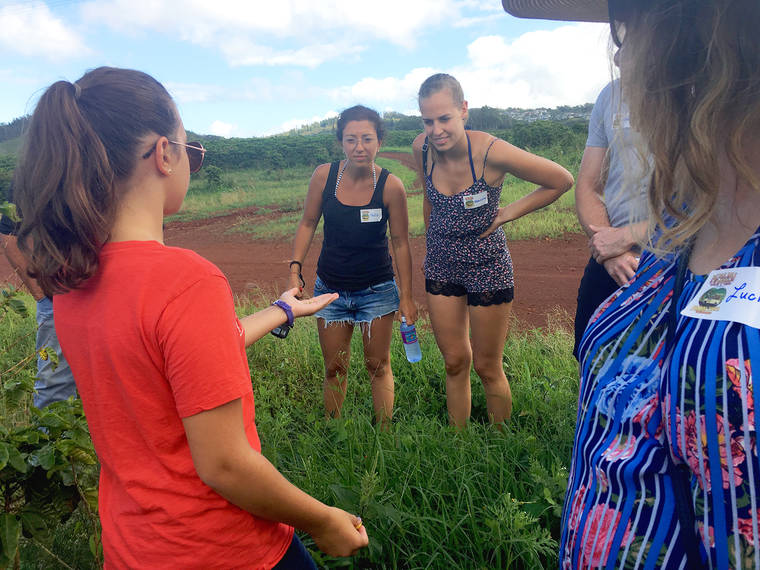
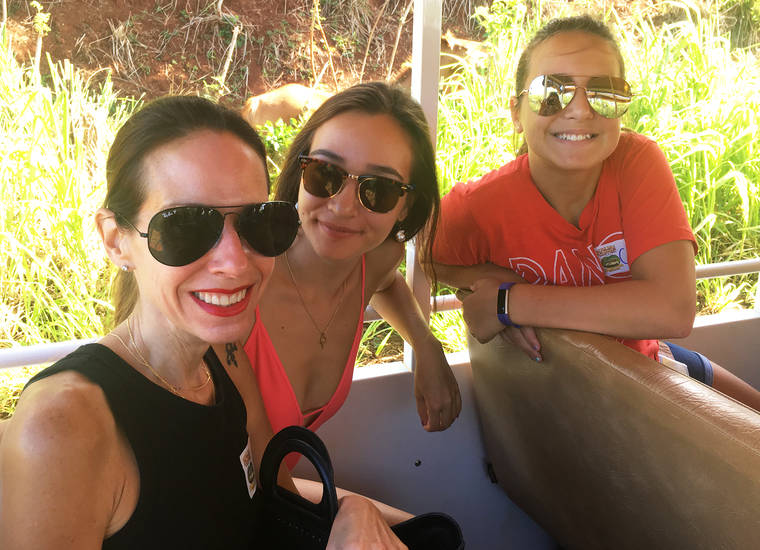
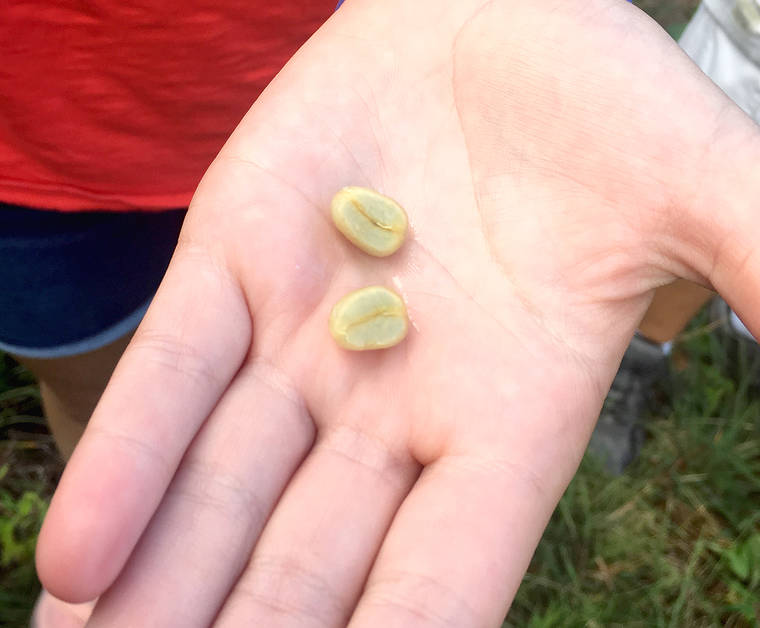
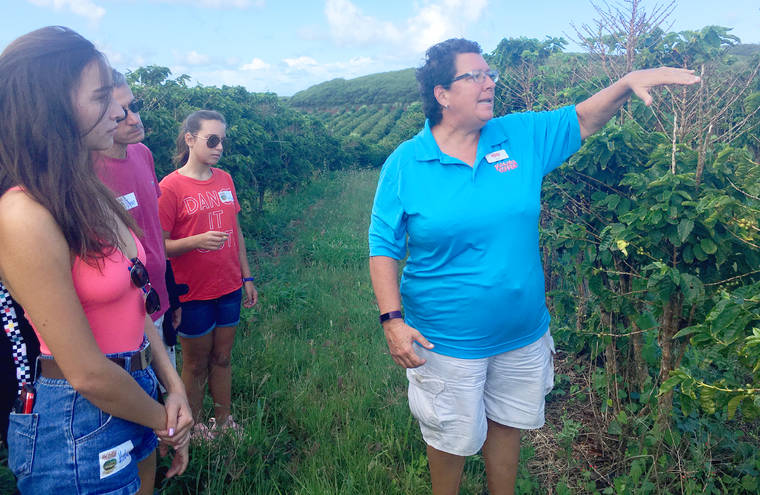

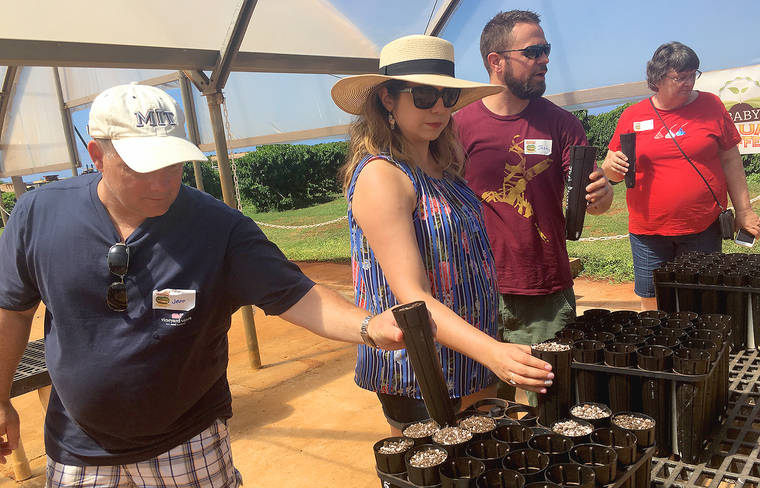

I am wondering if any of those tourists asked Lisa Johnston the brand of herbicide (weed killer) that Kauai Coffee is using to keep most of its fields weed free, as evidenced by the wide-angle photo of its fields with the ocean in the background.
Hopefully it is not Round-Up (Glyphosate) an herbicide that remains the world’s most ubiquitous weed killer, raises the cancer risk of those exposed to it by 41%, a new analysis says. This despite Monsanto’s protestations to the contrary.
Researchers from the University of Washington evaluated existing studies into the chemical — found in weed killers including Monsanto’s popular Roundup — and concluded that it significantly increases the risk of non-Hodgkin lymphoma (NHL), a cancer of the immune system.
If Kauai Coffee is using something more benign than Round-Up (or not), it should be made clear to visitors prior to their visiting the fields. Then its talk about “soil enrichment” might have more meaning, unless Kauai Coffee is simply using chemical fertilizers to enrich growth.